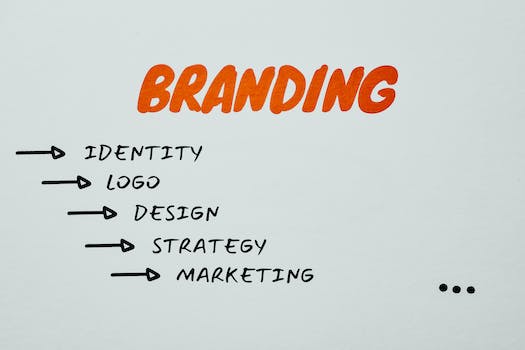Introduction
Sustainable marketing is a type of marketing that takes into account the environmental and social impact of a business’s marketing activities. It is about creating a positive impact on the environment and society while still achieving business goals.
Sustainable marketing is becoming increasingly important as consumers become more aware of the environmental and social impact of businesses. They are looking for companies that are committed to sustainability, and they are willing to reward those companies with their business.
Sustainable marketing can also benefit businesses by improving their reputation, attracting new customers, and reducing costs.
What is sustainable marketing?
Sustainable marketing is the process of creating and delivering marketing messages that have a positive impact on the environment and society. It is a way of doing business that takes into account the needs of the planet and its people, and it is becoming increasingly important as consumers become more aware of the impact of their purchasing decisions.
Sustainable marketing can be implemented in a variety of ways, from using recycled materials in marketing collateral to donating a portion of profits to environmental charities. It can also involve working with suppliers to reduce their environmental impact, or creating marketing campaigns that raise awareness of environmental issues.
There are many benefits to sustainable marketing, including:
- It can help to build a positive brand image and attract more customers.
- It can help to reduce costs, as sustainable practices can often be more efficient than traditional methods.
- It can help to create a more sustainable future for the planet.
However, there are also some challenges to sustainable marketing, such as:
- It can be more expensive to implement sustainable practices than traditional methods.
- It can be difficult to measure the impact of sustainable marketing efforts.
- It can be difficult to find suppliers who are willing to work with you on sustainable practices.
Despite the challenges, sustainable marketing is an important part of doing business in the 21st century. It is a way of demonstrating your commitment to the environment and society, and it can help you to create a more sustainable future for the planet.
Benefits of sustainable marketing
There are many benefits of sustainable marketing, including:
- Increased brand awareness and customer loyalty
- Improved reputation and credibility
- Attraction of new customers
- Reduced costs
- Enhanced employee morale
- Improved sustainability
By implementing sustainable marketing practices, businesses can create a positive impact on the environment and society, while also improving their bottom line.
Challenges of sustainable marketing
There are a number of challenges associated with sustainable marketing, including:
- Cost: Sustainable marketing can often be more expensive than traditional marketing, as it may require the use of more environmentally friendly materials or processes.
- Complexity: Sustainable marketing can be complex to implement, as it requires businesses to understand the environmental and social impacts of their products and services.
- Lack of awareness: There is still a lack of awareness among consumers about the benefits of sustainable marketing, which can make it difficult for businesses to justify the cost of implementing sustainable marketing practices.
Despite these challenges, sustainable marketing is becoming increasingly important for businesses, as consumers are becoming more aware of the environmental and social impacts of their purchases. Businesses that can successfully implement sustainable marketing practices will be well-positioned to attract and retain customers in the long term.
How to implement sustainable marketing
There are many ways to implement sustainable marketing into your business, depending on your specific industry and goals. Here are a few tips to get you started:
- Set goals and objectives. What do you want to achieve with your sustainable marketing efforts? Do you want to reduce your environmental impact? Increase brand awareness? Improve customer loyalty? Once you know what you want to achieve, you can develop a plan to reach your goals.
- Understand your target audience. Who are you trying to reach with your sustainable marketing efforts? What are their needs and interests? Once you know who you’re targeting, you can create content and messaging that resonates with them.
- Use sustainable materials and practices. Make sure your marketing materials are made from sustainable materials and that your marketing practices are as environmentally friendly as possible. This could include things like using recycled paper, printing ink made from soy, and offsetting your carbon footprint.
- Get involved in your community. Support local environmental organizations and initiatives, and get your employees involved in community cleanups and other projects. This shows your customers that you’re committed to making a positive impact on the environment.
- Be transparent about your sustainability efforts. Let your customers know what you’re doing to be more sustainable, and be honest about your progress. This will build trust and credibility with your customers, and it may even encourage them to make more sustainable choices themselves.
By following these tips, you can make your marketing efforts more sustainable and help your business make a positive impact on the environment.
Examples of sustainable marketing
Here are some examples of sustainable marketing practices:
- Using recycled materials in packaging. This can help to reduce the amount of waste produced by your business, and it can also show your customers that you are committed to environmental protection.
- Offsetting your carbon emissions. This means investing in projects that reduce greenhouse gas emissions, such as planting trees or investing in renewable energy. This can help to make your business more sustainable, and it can also show your customers that you are taking climate change seriously.
- Donating a portion of your profits to environmental charities. This is a great way to give back to the community and to support organizations that are working to protect the environment. It can also help to build goodwill with your customers and make them more likely to buy from your business.
- Partnering with other businesses to promote sustainability. This can be a great way to pool resources and to reach a wider audience. For example, you could partner with a local recycling center to host a recycling event, or you could partner with a green transportation company to offer discounts to your customers.
- Educating your customers about sustainability. This is an important part of sustainable marketing, as it helps to raise awareness of environmental issues and to encourage people to make more sustainable choices. You can educate your customers through your website, your social media channels, and your in-store marketing materials.
These are just a few examples of sustainable marketing practices. By implementing these practices, you can help to make your business more sustainable and you can also show your customers that you are committed to protecting the environment.
Case studies of sustainable marketing
Here are some case studies of companies that have successfully implemented sustainable marketing strategies:
- Patagonia: Is a clothing company that has been committed to sustainability for decades. The company uses recycled materials in its products, offsets its carbon emissions, and supports environmental causes. Patagonia’s sustainable marketing efforts have been praised by consumers and environmental groups alike.
- IKEA: Is a furniture company that has made a commitment to sustainability in recent years. The company has reduced its environmental impact by using more recycled materials, reducing its energy consumption, and investing in renewable energy. IKEA’s sustainable marketing efforts have helped to increase its brand awareness and attract new customers.
- Coca-Cola: Is a beverage company that has been working to reduce its environmental impact for many years. The company has reduced its water usage, recycled its packaging, and invested in renewable energy. Coca-Cola’s sustainable marketing efforts have helped to improve its brand image and attract new customers.
These are just a few examples of companies that have successfully implemented sustainable marketing strategies. By taking steps to reduce their environmental impact and support environmental causes, these companies have been able to improve their brand image, attract new customers, and build long-term sustainability.
Resources
Here are some resources that you can use to learn more about sustainable marketing:
you’re interested in learning more about sustainable marketing, I encourage you to do some research and learn about the different ways that you can make your marketing more sustainable. You can also start by making small changes to your marketing practices, such as using recycled materials or reducing your carbon footprint.
By making your marketing more sustainable, you can help to protect the environment and create a more just and equitable world.




